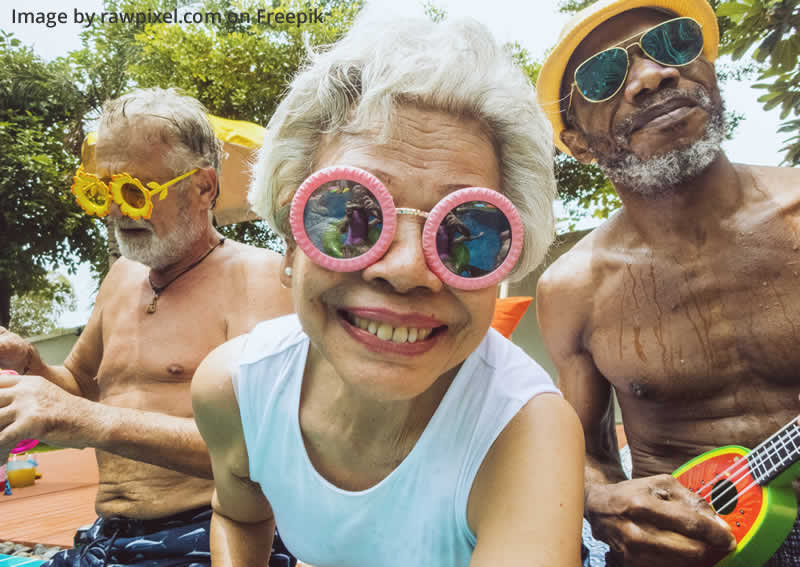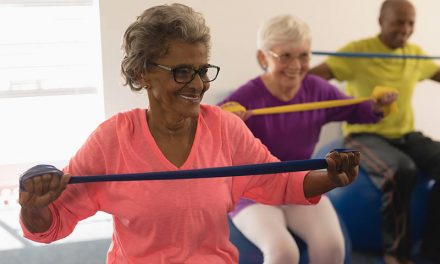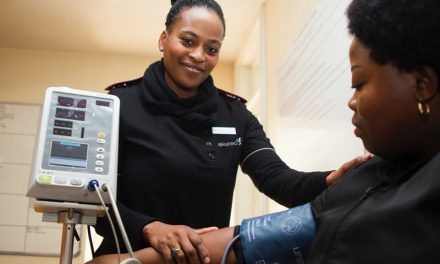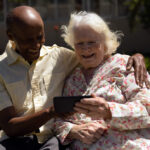What is Active Ageing? And why is it important?
Active Ageing is about refusing to let our age define us. It’s about making the most of life regardless of the passing years. More than that, it’s about taking the necessary steps to safeguard our strength and wellness, so that we can continue to live full, active, healthy and meaningful lives.
You’ve probably heard the saying, ‘You’re only as old as you feel.” With active ageing, the goal is to feel fit and strong, despite the changes that the passing years bring. How do we do this? By embracing these key elements.
Active ageing means keeping physically active
You don’t have to run a marathon or spend hours at the gym. Moderate activity such as walking, gardening, swimming, housework, dancing, yoga and pilates all help maintain muscle tone, strength and flexibility.
Weight bearing exercises such as jogging or walking stimulate the production of calcium, helping to reduce your chances of developing osteoporosis. Cardio exercise helps keep your heart healthy. Any form of exercise – even if it’s just ironing, vacuuming or sweeping the house, or washing the car – burns up calories and helps prevent weight gain.
Try these healthy exercises for the over 60s.
Keep your brain active
Just as regular physical exercise is a key element of active ageing, so too is the need to exercise your brain. Studies suggest that keeping your mind active may even delay the onset of degenerative cognitive diseases like dementia, especially Alzheimer’s.
Develop a lifelong passion for learning. Maybe you’ve always wanted to learn to speak Italian, or play the violin. Don’t let age stop you – it’s never too late to learn. Is it true that cats can hear a grasshopper eating? What other fascinating things don’t you know about the world around us? As for technology – active ageing means being aware of the latest developments in Artificial Intelligence (AI) and robotics. Or anything else that interests you.
Resolve to read more – and not just the same familiar genres. If you normally read fiction, try a self-help book or autobiography that exposes you to different ideas or points of view. Listening to the radio and watching documentaries on TV can also help promote active ageing. Learn to play chess, solve cryptic crossword puzzles and brain teasers.
Remain social
It’s more difficult to maintain a wide social circle as you get older. You may not be able to get out and about as much as you’d like. Old friends may move away or pass on. Or you may no longer be able to play tennis or bowls. Sometimes it’s just too much effort to see friends, or make new ones.
But loneliness is one of the most common and devastating conditions of old age. Human beings are social creatures. We need contact with others to stimulate ideas, exchange thoughts, confide our deepest hopes and fears, and celebrate joyful events.
If your social circle has dwindled, try joining a club or group with similar interests, or volunteer to help out at your church or a local charity. Get to grips with social media so you can connect with friends and family overseas. Video calls using an internet service like WhatsApp cost next to nothing, whether you’re calling your neighbour next door or a grandchild 10 000 km away.
Watch your attitude
If you’re always complaining about your aches and pains, or how badly your children or grandchildren treat you, don’t be surprised if your friends drift away. Nobody wants to be dragged down by a negative, depressing attitude.
Yes, life may have changed. Perhaps you’ve lost your life partner. Or you find it painful to walk or impossible to open a jar of jam. You miss your big family home and all the happy memories of when your children were growing up. Or you can’t afford a new coat, or even a bar of chocolate. As they say, “old age ain’t for sissies.”
But it’s a lot easier if you can find things to be grateful for … even if it’s just the fact that you woke up this morning, the sun is shining, or your favourite tune is playing on the radio. It’s strange – but when you start concentrating on the little things that make you happy, you suddenly start finding more and more of them.
There may be other techniques you can use to promote active ageing, like starting a new hobby or remaining at work long after retirement age.
Please do share your tips and ideas in the comment section below.






 Age-readiness vs Age-friendliness – preparing South Africa for long life
Age-readiness vs Age-friendliness – preparing South Africa for long life Sisonke – ‘we are together’
Sisonke – ‘we are together’ From Durban Social Worker to Global Champion for Older Persons
From Durban Social Worker to Global Champion for Older Persons Christmas joy – good food and good company, thanks to you!
Christmas joy – good food and good company, thanks to you! Robin Hood Foundation spreads love across Tafta Homes
Robin Hood Foundation spreads love across Tafta Homes 12 Days of Giving – spread joy to older people this Christmas
12 Days of Giving – spread joy to older people this Christmas Tafta resident pens powerful tribute to heritage and hope in new book
Tafta resident pens powerful tribute to heritage and hope in new book Introducing TEAL – our upgraded national Elder Abuse Helpline
Introducing TEAL – our upgraded national Elder Abuse Helpline Beat the year-end blues – 6 tips for staying positive during ‘silly season’
Beat the year-end blues – 6 tips for staying positive during ‘silly season’ Wisdom on ageing – the most exquisite chapter
Wisdom on ageing – the most exquisite chapter